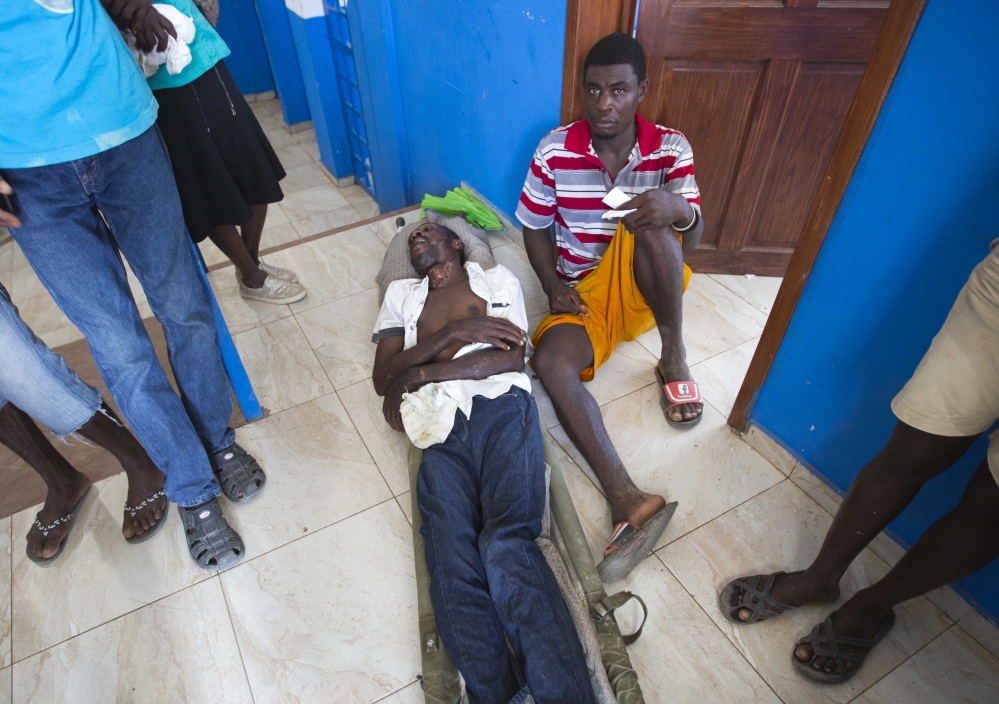MARFRANC, Haiti —At a cramped police station serving as a makeshift clinic, Darline Derosier fastened IV drips to jail cell bars, wiped the brows of cholera patients and tended to the wounds of those injured when Hurricane Matthew slammed into Haiti’s southwestern peninsula.
She was the only health worker helping about 40 patients Monday inside the station bereft of police as she waited for help to arrive in the hard-hit town of Marfranc nearly a week after the Category 4 storm struck Oct. 4.
Among the patients was an elderly woman lying unconscious on a jail cell floor with a leg bandaged in an old rag and a man with gashes around his neck, his eyes fluttering.
“People will die soon if we don’t get some aid,” an overwhelmed Derosier said.
The town is a 45-minute drive southwest from the coastal city of Jeremie, where food, medicine and fresh water are finally arriving but still slow to reach increasingly desperate communities.
“We haven’t received anything from Jeremie,” Derosier said, adding that she has made several calls requesting help and medical supplies.
The U.N. humanitarian agency in Geneva made an emergency appeal Monday for nearly $120 million in aid, saying about 750,000 people in southwest Haiti alone will need “life-saving assistance and protection” in the next three months.
U.N. officials said earlier that at least 1.4 million people across the region need assistance and that 2.1 million overall have been affected by the hurricane. Some 175,000 people remain in shelters.
Electricity was still out, water and food were scarce, and officials said young men in villages along the road between the hard-hit cities of Les Cayes and Jeremie were building blockades of rocks and broken branches to halt relief convoys.
Copy the Story LinkSend questions/comments to the editors.



Success. Please wait for the page to reload. If the page does not reload within 5 seconds, please refresh the page.
Enter your email and password to access comments.
Hi, to comment on stories you must . This profile is in addition to your subscription and website login.
Already have a commenting profile? .
Invalid username/password.
Please check your email to confirm and complete your registration.
Only subscribers are eligible to post comments. Please subscribe or login first for digital access. Here’s why.
Use the form below to reset your password. When you've submitted your account email, we will send an email with a reset code.